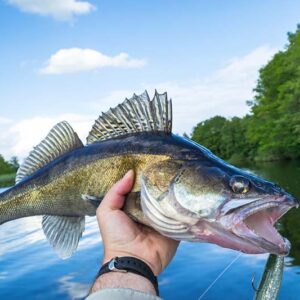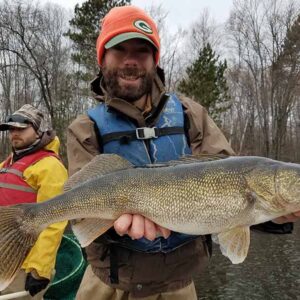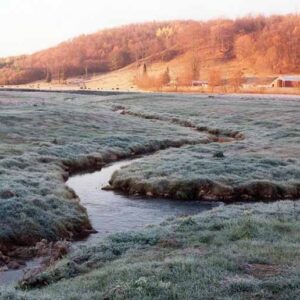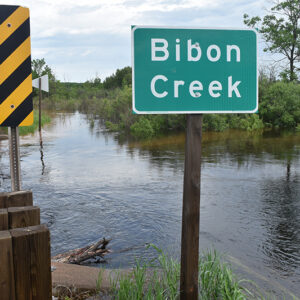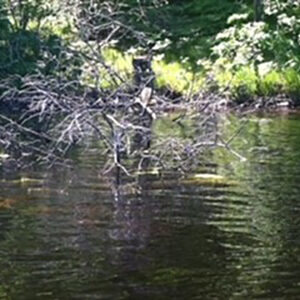Fishing is an important part of the culture and economy in Wisconsin. As water temperatures warm, Wisconsin’s cool- and cold-water fish habitats are particularly at risk, and those habitats harbor some of Wisconsin’s most popular and sought-after fish, like brook trout, lake trout, cisco, lake whitefish, walleye, yellow perch, and muskellunge.
The most recent report from the Wisconsin Initiative on Climate Change Impacts (WICCI) describes climate impacts to fisheries, including warmer water temperatures and more frequent, extreme storms and heat events.
A decline in ice cover and increasing variability in ice-on and ice-off dates in Wisconsin’s lakes are having significant impacts. From the duration of ice thick enough to be safe for ice fishing to the increasingly unpredictable timing in annual freezing and thawing dates that set up lake and tributary environments for fish spawning, climate change is impacting fish and anglers alike. Ultimately, these changes are reducing the survival of iconic fish like walleye and perch.
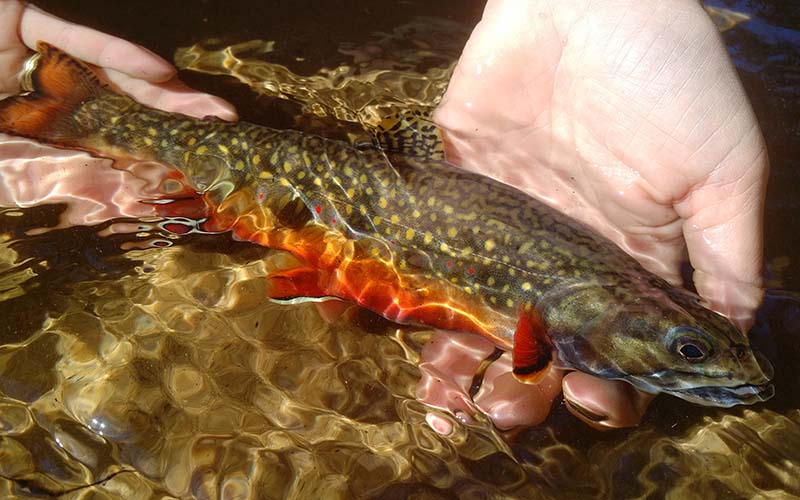
Fish communities are also changing as waters warm. By mid-century, models project a decline of 68 percent in stream habitat for brook trout and 32 percent for brown trout. Cisco have already disappeared from 29 percent of lakes in which they used to thrive, and lake whitefish have disappeared from 33 percent. Within a century, warm-water species like bass and bluegill will likely dominate Wisconsin’s inland lakes.
In Lakes Michigan and Superior, warmer-water species, such as smallmouth bass, would be able to compete in the more southern and shallower habitat currently occupied by cool-water fish like walleye.
A combination of invasive species expansions, excess nutrients, and less well-oxygenated habitat can exacerbate these losses. While smaller, shallower and more productive lakes will be the most vulnerable, deep lakes may also be at risk.
Yet, there is hope. Protecting stronghold fish populations, preventing overharvest, enhancing cooler water habitats, and reducing runoff are among the solutions recommended by the WICCI Fisheries Working Group. There is hope for the future, but it’s up to us.
This article is part of a series highlighting the contribution from each WICCI Working Group for the 2021 WICCI Assessment Report.
Support WICCI
Gifts to the Wisconsin Initiative on Climate Change Impacts (WICCI) Program Fund provide general, discretionary program support and are used to enhance and expand WICCI’s teaching, research, and public service roles. Gifts are also used to support partnership-building activities, include faculty, staff, and student recruitment, retention, and morale.
The Wisconsin Initiative on Climate Change Impacts (WICCI) is a statewide collaboration of scientists and stakeholders formed as a partnership between UW–Madison’s Nelson Institute for Environmental Studies and the Wisconsin Department of Natural Resources. WICCI’s goals are to evaluate climate change impacts on Wisconsin and foster solutions.
